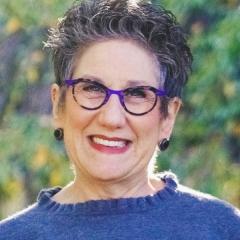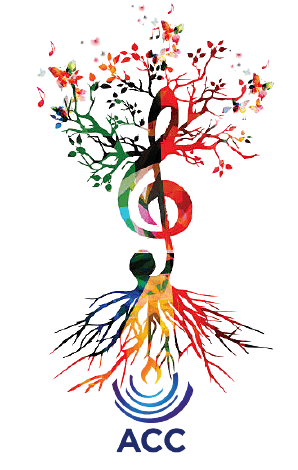
KOLOT DOROT: VOICES OF THE GENERATIONS--CELEBRATING 50 YEARS OF WOMEN IN THE CANTORATE AND SHABBAT SHIRAH MATERIALS
Dear Cantors, Rabbis, Congregations, Friends,
2025 marks a watershed moment for the Jewish people. This year we mark the 50th anniversary of the ordination of Cantor Barbara Ostfeld, the first woman to be ordained as a cantor. This is a milestone not only for our friend and colleague, but a momentous occasion for all of us.
We are honored to take time this year to mark this anniversary with songs, prayer, stories, and more. Here you will find ways to join in the celebrations, educate your community, and support this occasion.
Our kickoff event will be Shabbat Shirah of 5785, February 7, 2025. The Shabbat of Song has long been a time to celebrate the importance of music in Jewish life. This year, as we continue that tradition, we will be providing resources to honor Jewish women's roles in helping shape the sound of worship.
Here you will find sample cue sheets to help you center women composers with an emphasis on female-identifying cantors as composers. We hope these sample cue sheets can be easily used by congregations that have a cantor, those that want to share this occasion with their choir, and those that don’t have a cantor, but who love music.
We have been gifted with a blessing for us all from Cantor Ostfeld. We hope that her words bring her presence to each of our congregations as she, and those who followed in her footsteps, have allowed more of our congregants to feel represented on each and every bimah across our movement and beyond.
We also have materials that you can use to help promote this occasion with your congregation or organization: Our logo, and a brief synopsis of the history of women in the cantorate that can be printed for Shabbat or shared in advance.
We hope you will join with congregations around the Jewish world to celebrate our past, honor our present, and help shape the future so that we might continue from strength to strength.
A Blessing for congregations celebrating 50 Years of Women in the Cantorate from Cantor Barbara Ostfeld
Bless all who pray
beneath a crowded tent
and all who pray in isolation.
Bless everyone
who hears a chanting voice
and all who sense its power.
We who chant
gather your sounds,
the ring of your timbrels
braiding them holy
sending them up.
A BRIEF HISTORY OF WOMEN IN THE CANTORATE
In 1975, just 50 short years ago, Barbara Ostfeld was ordained as the first female Cantor by the Hebrew Union College-Jewish Institute of Religion. Prior to that, while there had been women serving as prayer leaders (zogerin), women singing and recording hazzanut, and even women who were given the professional title of Cantor, there had never been a woman ordained and recognized as a full member of the clergy.
According to accounts dating back to the 12th century, women have long used their voices to lead the Jewish people in prayer. While most remain nameless, the gravestone of Urania of Worms (d.1275),states she “chanted piyyutim (liturgical poems) and supplications for the women.” Technological innovations over the last century have brought us recordings of such beloved Khazantes as Lady Cantor Madam Sophie Kurtzer (1896-1974), Jean Gornish (known as Shaindele di Khaznte, 1915-1981), and Fraydele Oysher (1913-2003). Their voices, and so many others, led the way for the women who would become Cantors after them.
Before the 1970s,women studying at HUC-JIR in the School of Sacred Music, now the Debbie Friedman School of Sacred Music, were preparing to serve in congregations as music teachers and choir directors. Following the 1972 ordination of Sally Priesand as the first female rabbi, the Reform Movement began to consider formal ordination of women Cantors. Within just a few short years of Cantor Ostfeld’s ordination, her impact was seen and heard. Many more women followed her into the ranks of the cantorate, changing the sound of Jewish music as they went. Throughout the 1980s and into the 1990s, women cantors greatly influenced the character of the profession and of Jewish American life in general. Cantors Vicki Axe and Judith Rowland were the first women presidents of the American Conference of Cantors (ACC), raising the female voice in leadership to a new level of significance.
Today, there are more women than men serving as Cantors of liberal congregations in the US. Adding women’s voices to the cantorial canon has changed the sound of Jewish music and our Jewish community. Composers can now write new works for a variety of vocal ranges. Congregants can now see a full range of gender expressions on the bimah leading services. Indeed, the language of our liturgy now often reflects the inclusion not just of women, but also of those who identify as non-binary and transgender. In reflecting upon her chosen profession Cantor Barbara Ostfeld wrote, “Female cantors have altered the way in which prayer is offered, heard, and received.”
OUR COMMITTEE
Cantor Joanna Alexander - Co-Chair
Cantor Rebecca Moses - Co-Chair
Cantor Dana Anesi
Cantor Lisa Arbisser
Cantor Paula Baruch
Cantor Susan Bortnick
Cantor Hayley Kobilinsky
Cantor Aviva Marer
Cantor Sydney Michaeli
Cantor Faryn Rudnick
Cantor Shanna Zell
Click here to download the resource guide in PDF


